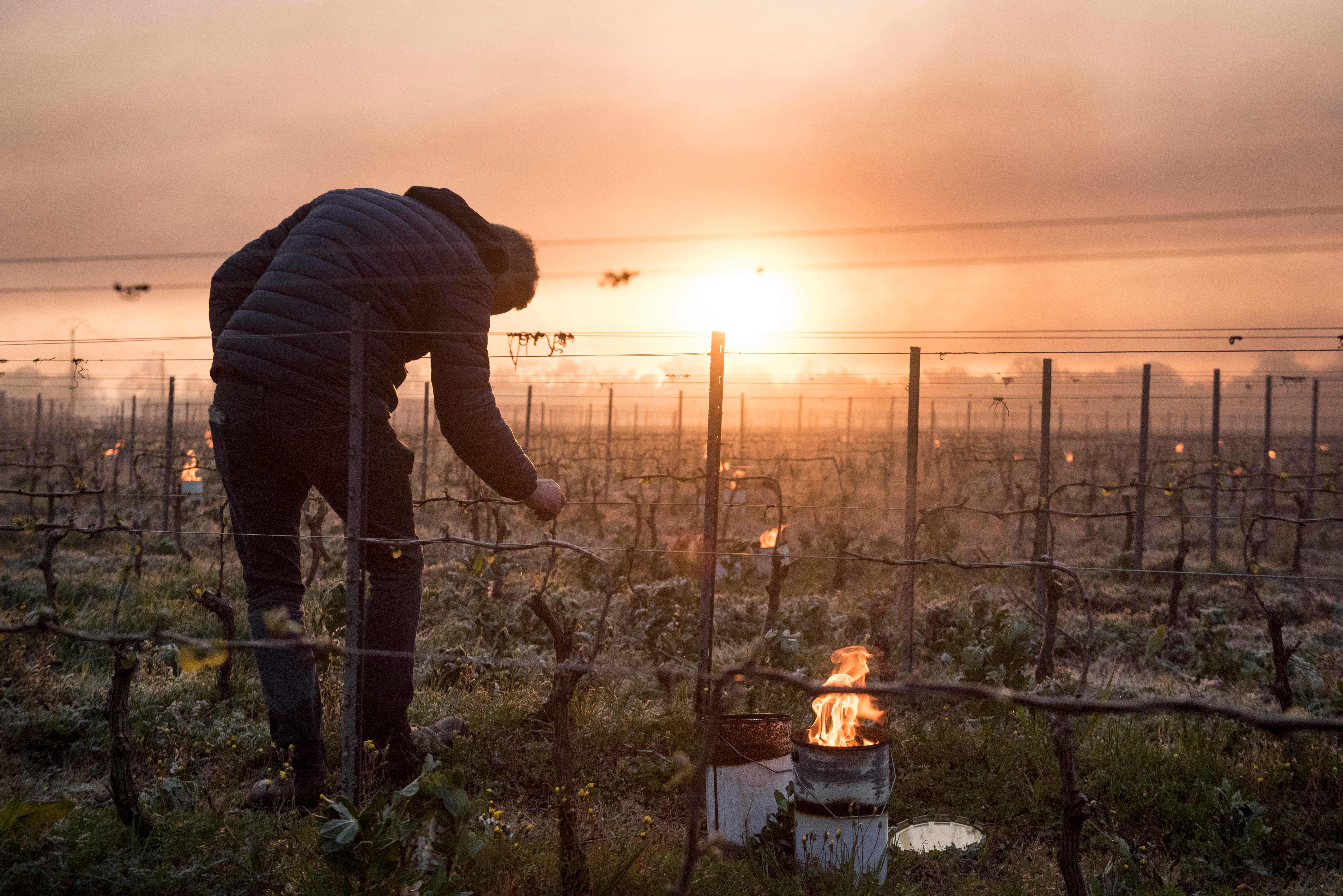French wine production devastated by frost
‘I heard someone say it was like the loss of a family member’

Your support helps us to tell the story
From reproductive rights to climate change to Big Tech, The Independent is on the ground when the story is developing. Whether it's investigating the financials of Elon Musk's pro-Trump PAC or producing our latest documentary, 'The A Word', which shines a light on the American women fighting for reproductive rights, we know how important it is to parse out the facts from the messaging.
At such a critical moment in US history, we need reporters on the ground. Your donation allows us to keep sending journalists to speak to both sides of the story.
The Independent is trusted by Americans across the entire political spectrum. And unlike many other quality news outlets, we choose not to lock Americans out of our reporting and analysis with paywalls. We believe quality journalism should be available to everyone, paid for by those who can afford it.
Your support makes all the difference.A sudden frost, the worst in decades, has ravaged a French wine industry already reeling from the impact of the coronavirus pandemic and what is known among winegrowers as the “Trump tax.”
Candles and small fires glittered across vineyards and orchards last week, their pretty flickering belying the disaster, as winegrowers and farmers tried everything to ward off the frost cutting the life from newly formed shoots and buds. A layer of smog from the fires formed over Lyon and areas of the southeast.
But by the time the cold snap ended, destruction had spread across most of France’s winegrowing regions, including the Rhone Valley, Bordeaux, Burgundy, Champagne and Loire. Jean-Marie Barillère, head of a major wine-industry association, told the French daily Le Figaro the frost had hit “80 per cent of French vineyards.”
The frost followed a period of mild weather, so the plunging temperatures caught rural France by surprise. Vines were the worst hit, but almond and fruit trees were also impacted, as were some other crops, including beets and rapeseed.
Emotion ran high throughout French wine regions, the soul of the country in many ways.
“I heard someone say it was like the loss of a family member,” Eric Pastorino, president of the Côtes de Provence appellation, a legally defined and protected winegrowing area, told Le Figaro. “It may seem puerile, but that is close to what I feel. Perhaps only winegrowers can understand this sentiment, but we have found ourselves out in the vines in the morning with tears in our eyes.”
Anne Colombo, president of the Cornas appellation, a prized winegrowing area in the Rhone region, said it was the worst frost in more than a half-century. “We’ve had greater problems with hail than frost, but this year was devastating,” she said.
Reeling off the names of great Rhone wines — Condrieu, Cornas, Côte Rotie — she indicated they were all severely impacted. Losses could range as high as 80 per cent. “It’s a terrible blow after the virus — which has shut restaurants and bars and so slashed demand — and after the Trump tax.”
Then-US President Donald Trump imposed tariffs on French wines as a result of various subsidy and tax disputes with France. The import taxes contributed to a 14 per cent plunge in global French wine and spirt exports last year. With air traffic way down, duty-free wine sales have also plummeted.
French government ministers fell over themselves promising emergency aid to stricken winegrowers and farmers. The French attachment to the land is fierce; no politician can afford to ignore this. Prime Minister Jean Castex said the ceiling on an agricultural-calamities fund would be lifted and “exceptional” assistance would be given.
Agriculture Minister Julien Denormandie said the frost was “an episode of extreme violence that has caused very significant damage.” He convened an emergency meeting Monday with winemakers, as well as fruit, vegetable and cereal producers, to review the damage.
“The government will help us, but probably not to the extent of our losses,” Ms Colombo said. “Right now, they are spending like there is no tomorrow.”
Since the coronavirus pandemic began, the government of President Emmanuel Macron has decided to spend whatever it takes to compensate people for lost jobs and business. The final cost and how the debt will be paid back are unclear. It seemed a similar approach would be taken to the agricultural disaster.
“It’s incredibly hard, very violent,” David Joulain, an almond grower in the south, told Agence France-Presse. “I have the feeling one knee is on the ground. Every tree I have tested is dead, I am afraid that I have lost the whole crop.”
The New York Times
Subscribe to Independent Premium to bookmark this article
Want to bookmark your favourite articles and stories to read or reference later? Start your Independent Premium subscription today.
Join our commenting forum
Join thought-provoking conversations, follow other Independent readers and see their replies
Comments